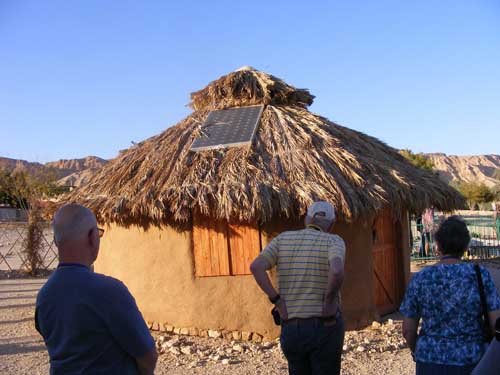By Michael Ordman
 NETANYA, Israel — In reading about the Children of Israel leaving Egypt, it is easy to imagine that Moses was the original CEO of the very first Startup Nation. Today, the “company mission” – to become a light to the nations – is certainly being fulfilled by the prolific recent achievements of the Jewish State and its current generation of young startup companies.
NETANYA, Israel — In reading about the Children of Israel leaving Egypt, it is easy to imagine that Moses was the original CEO of the very first Startup Nation. Today, the “company mission” – to become a light to the nations – is certainly being fulfilled by the prolific recent achievements of the Jewish State and its current generation of young startup companies.
Israeli startups dominate the Life Sciences market, as attendees from 60 countries will experience at MEDinISRAEL in March, where medical solutions from 120 Israeli companies will be on display. Lifesaving products include the tiny patch pumps from Israeli startup ToucheMedical that deliver meds directly into the bodies of diabetics and Parkinson’s sufferers. Or MediSafe’s medication reminder app that sends you an alert if a dependent forgets to take vital medication.

Lighting up the nations takes on a new meaning with Israeli solar technology. Thanks to Israeli startup Energiya Global, the new 8.5 MegaWatt solar field at the Agahozo-Shalom Youth Village in Rwanda will add 6 percent to the East-African country’s electricity production. Meanwhile at the site of the huge fields of solar panels at Kibbutz Ketura in Israel’s Negev desert, Israeli-designers are developing mud huts with solar panels in their roofs.
Anyone with a mission knows the importance of “staying on message” – being focused and consistent with your ideals. Two Israeli startups have literally incorporated that message into their products. Glide has developed video messaging that is so fast, you can begin watching a video on the other side of the world before your friend has finished recording it! And years after an Israeli startup invented ICQ (the world’s first instant messenger) another Israeli startup has invented Music Messenger – already a huge hit in the music industry.
Israel is rated one of the world’s most innovative countries and the global potential of Israeli startups has certainly been recognized by the world’s multinationals. Johnson and Johnson together with Takeda have launched FutuRx an Israeli biotech startup incubator in Rehovot’s Weizmann Science Park. Samsung invested in eight Israeli startups in 2014. Five more recently graduated from IBM’s Alpha Zone accelerator. And a further eleven have just graduated from the Microsoft Ventures cyber-security and medical accelerator program.
The demand for Israeli innovation was highlighted strikingly last month when overseas companies invested over $900 million in Israeli startups in just one week! Acquisitions included Amazon’s of Israel’s Annapurna Labs for $370 million and Harman’s of Israel’s Red Bend Software for $200 million. The Economist reported that Tel Aviv is the world’s no. 2 startup ecosystem.
Although the USA and Europe are still Israel’s biggest customers, there has been a massive increase of interest in Israeli startups from the Asian market. Two $100 million-plus Chinese-based funds have recently been launched, investing in Israeli startups. Next, Startup East is the first Israeli-Asian accelerator aiming to connect startups in Israel with East Asia. Finally, the “Israel Innovation in India” pavilion opened at Vibrant Gujarat 2015, showcasing Indo-Israeli cooperation, with special focus on advanced Israeli technologies in the fields of agriculture and homeland security.
If you had any doubts about the democratic nature of the Jewish State, you should take note that Israeli-Arabs Aziz Kaddan and Anas Abu Mukh were just 19 when they started development of Myndlift – an app that teaches ADHD children and adults to concentrate by using their brainwaves to display a bright image. Another Israel-Arab, Technion’s Professor Hossam Haick, is looking to incorporate his NaNose cancer “breathalyzer” technology into a mobile phone, called appropriately the “SniffPhone”. And Israel’s Economy ministry has just awarded NIS 10 million to two organizations, Tsofen and ITworks, for the training and integration of Arab, Druse, and Circassian academics into the hi-tech sector.
Finally, the fact that the Start-up Nation is still in its infancy can be measured by the fact that Iddo Gino heads up the start-up RapidPay, a year-old company providing a mobile payment platform for customers without a credit card. Iddo studies at the Hebrew Reali School in Haifa and hopes to obtain a degree in computer science at the Open University next year. Iddo is just 17 years old.
Israel – we’ve only just begun.
Michael Ordman writes a free weekly newsletter containing positive news stories about Israel. www.verygoodnewsisrael.blogspot.com For a free subscription, email a request to michael.goodnewsisrael@gmail.com